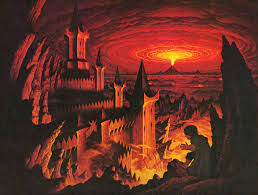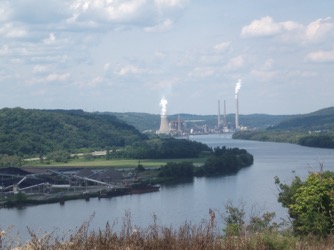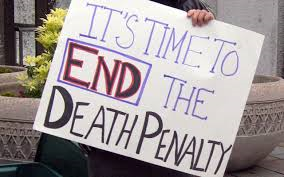This post is part of a series on the Faith of Theologians. A full list of the previous responses by fellow colleagues can be found at the bottom of Dana Dillon’s post introducing and explaining the series.
Toward the climax of J. R. R. Tolkien’s Lord of the Rings, Frodo and Sam descend from the mountainous walls of Mordor and gaze upon Mt. Doom some forty miles away, the only place where the ring can be destroyed. Between them and the mountain are the fields of Gorgoroth, and they are filled “as far as their eyes could see” with Sauron’s army, grouped like “small towns” or “huge nest[s] of insects.”
“Well!” Sam went on. “Whatever they have to eat and drink, we can’t get it. There’s no way down that I can see. And we couldn’t cross all that open country crawling with enemies, even if we did get down.
“Still we shall have to try,” said Frodo. “It’s no worse than I expected. I never hoped to get across. I can’t see any hope of it now. But I’ve still got to do the best I can.”
This “without hope” scene has always stayed with me.
I was born in the wake of Watergate, the Vietnam War, and the assassinations of John Kennedy and Martin Luther King Jr.
I grew up amidst the threat of a nuclear holocaust, the explosion of the Challenger, the assassination of John Lennon, the recognition of the HIV/AIDS epidemic, sex abuse scandals of the Catholic Church, the Crack-Cocaine epidemic, the Iran-Contra Affair, and the Exxon Valdez oil spill.
I was in graduate school during the Oklahoma City Bombing and the Columbine High School shooting. I will always know that September 11, 2001 was on a Tuesday. This is not because the plane that flew into the Pentagon shook my apartment building as it passed but because it occurred four days before I had planned to fly to Chicago to propose to my now wife.
Trying to believe things will get better or that what I do matters so often seems like a foolish, saccharin hope.
“Vanity of vanities,” says Qoheleth, “vanity of vanities! All things are vanity! What profit has man from all the labor which he toils at under the sun?” (Ecclesiastes 1:1)
Frodo sees no way to succeed, assuming defeat before he gets to Mt. Doom and, even if he were to get there, dying in the process of destroying the ring. There are others around him, though, at work to help him. Aragorn and Gandalf are marching to the Gates of Mordor. Sauron so strongly desires the ring that he assumes that everyone else must feel likewise. He cannot imagine that anyone would try to destroy it, so when Gandalf and Aragorn arrive, Sauron believes exactly what Aragorm and Gandalf hoped he would, that they bear the ring and are challenging his dominion. Sauron empties his troops onto them. This folly leaves the fields of Gorgoroth vacant and enables Frodo and Sam to move unhindered to Mount Doom.
This is the hope Tolkien writes into the story, one the characters only sometimes grasp. It is not a hope in oneself or the efficacy of one’s actions. Rather, it is the hope that the good is working through creation, in the hearts of countless people, and will be victorious, even if one is not. This hope in forces and friends greater than one’s self enables one to keep going, even when one “can’t see any hope of it now”.
It is, of course, a Christian hope. It is a hope rooted in the God who suffered and died on a cross, that keeps us going even when there is no seeming reason to do so.
When our days become dreary with low-hovering clouds of despair, and when our nights become darker than a thousand midnights, let us remember that there is a creative force in this universe working to pull down the gigantic mountains of evil, a power that is able to make a way out of no way and transform dark yesterdays into bright tomorrows. Let us realize that the arc of the moral universe is long, but it bends toward justice. (Martin Luther King Jr., “Where Do We Go From Here?”)
This is the hope that shapes my theology. It is rooted in the faith given to me through my parents and sustained in me by the love of my wife and children. It is an understanding nurtured by the patience and wisdom of my teachers in college and graduate school.
I have received all of these gifts from others, so I do theology to share them. My peers and colleagues are so brilliant and insightful that when I sit down to write I feel like I can do nothing better than to tell others about their ideas.
Teaching is the same. I share what I have read on relationships, work, movies, and justice in hopes that students might be nourished by these works the way that I have been. As I share them though, I find students constantly renewing my joy in the material, teaching me new ways of understanding it. Even in teaching I receive.
When my world seems small, like theology is only important to a few people in the academy or my students in the classroom, I remind myself of our theology majors that have gone on do some of the most amazing things, carrying the gospel out into the world. They go to poor parishes to work, teach in elementary schools in foreign countries or in the inner city. They go on to study in law school, medical school, and graduate school. They raise money for non-profits or for food for the hungry. The list could go on, but, when I think of them, I see the universe bending toward justice.
Early in the Lord of the Rings, during the Council of Elrond, Frodo feels called to destroy the ring, even though he does not really know what it entails nor have a sense of how to accomplish it. He accepts this call by simply saying, “I will take the Ring . . . . though I do not know the way.” I do theology even though I depend upon friends, family, colleagues, and students and “do not know the way”. I do theology in gratitude for all that I have received, trying to point out and see the goodness and holiness being accomplished throughout creation by God in and through people. I do this even though I have “no hope” of ever being able to repay the gifts I have received.





Lovely writing, Jason. I very much share your sense that were it not certain that there are larger forces for love at work, my feeble grasping at educating future generations would seem absolutely inane. Thanks for your words.
Thanks for a very inspiring piece.
In the end, it’s not our own contributions but the grace of God working thru us.
God Bless